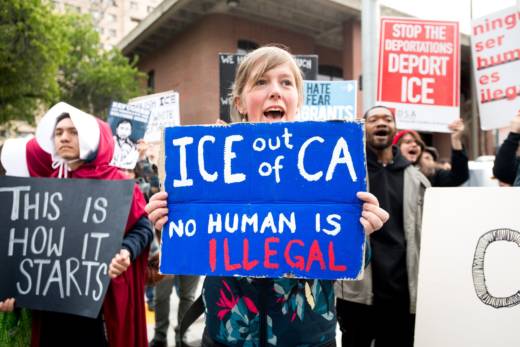A judge on Monday dismissed the federal government's claim that U.S. law trumps two California laws limiting local police cooperation with immigration enforcement and requiring inspections of detention facilities in the state.
The ruling by U.S. District Judge John Mendez follows his decision last week that California was within its rights to pass two of the three laws.
He ruled Monday that the federal government could proceed with its attempt to stop part of a third California law, which prohibits employers from allowing immigration officials on their property without warrants. Mendez issued a preliminary injunction against that provision of AB 450 last week, but he allowed part of the law that requires employers to notify workers if their citizenship is being audited by immigration officials.
Mendez rejected the U.S. government's argument on the two other laws -- SB 54 and AB 103 -- that the U.S. Constitution gives the federal government pre-eminent power to regulate immigration.
The Trump administration argued that California is obstructing immigration enforcement efforts.
